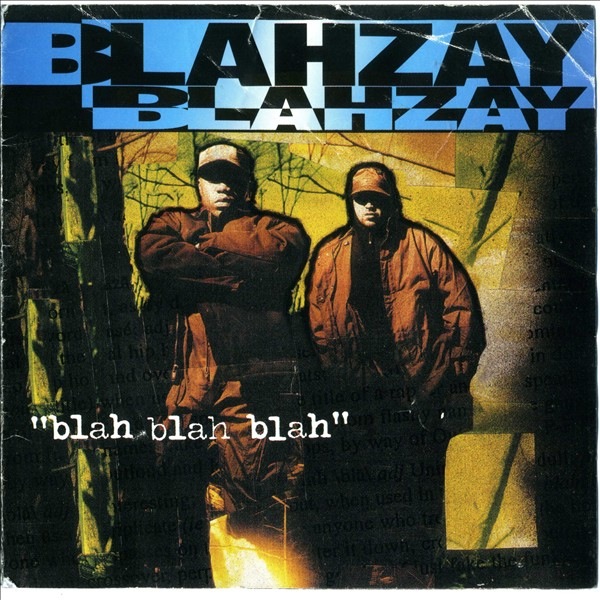There’s what some enthusiasts refer to, perhaps too casually, as “no-bullshit” hip-hop, and then there are albums like Blahzay Blahzay’s Blah Blah Blah, which sidestep determinations of BS altogether by inverting the principles of normative rap posturing. This is one of the finest East Coast releases of the mid-90s, but it doesn’t sound exactly of its time—parts of it hit the purest pleasure centers of the brain like an early 90s Golden Age record, other parts summon the ghosts of earlier eras. It’s a record that resists easy determinations, especially since it’s the only full-length release ever put out by Blahzay Blahzay. There’s something refreshingly literal about the duo’s approach to hip-hop sonics, as one might expect from the union of a rapper who calls himself “Outloud” and a DJ with the moniker “Cuttin’”. The name Blah Blah Blah may invoke literal nonsense as its cover, but the content inside couldn’t contrast more sharply—as Outloud brags on standout track “Pain I Feel,” “I drop clarity like keratin.”
Blahzay Blahzay was designed from the beginning to be an important but peripheral force on New York rap. Outloud and Cuttin’ first got together in 1985, more than a decade before Blah Blah Blah was released, and in that period the duo produced songs for Juice Crew artists like Craig G. and Masta Ace. They took a lot of time putting out their own material, but their careful approach paid off when their 1995 single “Danger” became a smash hit. “Danger” also features Outloud’s densely orchestrated flow schemes, really laying the accents on internal rhymes like “Surged most preferred from the verbs and the words.” The rapping is amazingly good on “Danger,” and on Blah Blah Blah in full. One particularly ambiguous rap performance is “Good Cop/Bad Cop,” which dramatizes the interactions between two NYPD officers as one “good” cop becomes suspicious of a “bad” cop’s racism and abuse of power. It’s one of the few hip-hop songs that really sells a policeman’s perspective in an engaging, non-reductive fashion.
Cuttin’s beats are often even more extraordinary than Outloud’s thoughtful, critical raps. The sample featured on Blah Blah Blah’s “Intro” is taken from the Mahavishnu Orchestra’s mesmerizing fusion anthem “You Know You Know” (New York hip-hop, then and now, was one of the few scenes to take Mahavishnu-Weather Report jazz fusion seriously). From the crisp piano figure of “Blah Blah Blah” to the hazy organ of “Don’t Let This Rap Shit Fool You” to the sauntering guitar line that appears at 2:18 of “Pain I Feel,” the album is a trove of memorable sound combinations. In terms of emcee/DJ musical synergy, Blahzay Blahzay should at least be spoken of in the same terms as Gang Starr or Pete Rock & CL Smooth. Why they limited their output to one album and a maxi-single (“Not Now” b/w “Dat Shit,” from 2000), I’m not entirely sure, but it could be that Blahzay Blahzay was one of those groups that preferred the background, and only needed to prove what they could do once. Would that the architects of so many promising hip-hop debuts have done the same, modern hip-hop culture might be far less ego-driven.

No comments:
Post a Comment